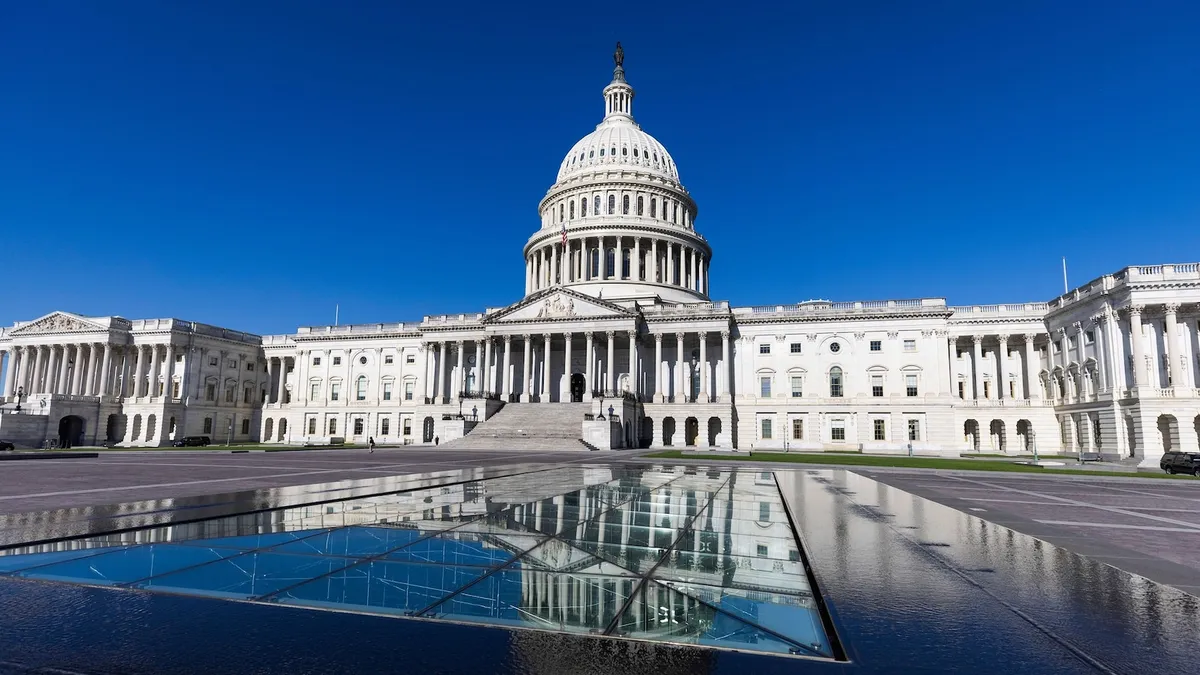
As lawmakers return to the Capitol after a six-week break, they face significant challenges, most notably the looming government funding deadline. The urgency to fund the government before October 1st is paramount, and the potential for a shutdown looms large. Additionally, Congress will grapple with pressing issues surrounding the Jeffrey Epstein files and other legislative priorities. Here’s a comprehensive overview of the key obstacles and priorities that await both chambers as they reconvene on Tuesday.
Congress must act swiftly to fund the government before the impending October 1st deadline to avoid a shutdown. Achieving bipartisan cooperation is crucial in this politically charged environment. Top Democratic leaders, including Senate Majority Leader Chuck Schumer and House Minority Leader Hakeem Jeffries, have called for bipartisan discussions with President Donald Trump and GOP leadership to chart a way forward on funding. However, as of now, this request remains unfulfilled, despite Trump indicating his willingness to meet with Schumer and Jeffries.
Trump commented on the situation, stating, "Well, I will, I guess. But it's almost a waste of time to meet because they never approve anything," during an August 13th interview. Democrats are poised to push back, aiming to restore cuts to Medicaid and rural hospital funding in exchange for their votes. Assuming all 53 Senate Republicans support the funding, at least seven Democrats will need to join them to form a bipartisan majority. However, Trump's recent request for a rescissions package, which seeks to reclaim $4.9 billion in foreign aid funding, complicates negotiations.
Despite previous commitments to fund the government through regular order, Republicans face a daunting task. With razor-thin majorities in both chambers, passing 12 appropriations bills appears increasingly improbable. Currently, the House and Senate have only advanced two appropriations bills each, with the House pushing nine bills out of committee and the Senate eight. Without a bipartisan agreement, a continuing resolution may be the only option to prevent a shutdown, raising concerns about the likelihood of a government closure as the deadline approaches.
As Congress returns, the unresolved issue of the Epstein files resurfaces, creating a tense atmosphere reminiscent of the stalemate prior to the recess. On September 3rd, Representatives Thomas Massie and Ro Khanna are scheduled to hold a press conference with survivors of Epstein's sexual abuse, aiming to gather the necessary signatures for a discharge petition that would force a vote on the release of the Epstein files. This move is at odds with Speaker Mike Johnson's preference for the Department of Justice to lead the transparency efforts.
The House Oversight Committee is expected to meet with victims on Tuesday, generating significant attention on Capitol Hill. Prior to the recess, the lower chamber was paralyzed by disagreements over the Epstein files, with the House Rules Committee failing to advance any bills for floor votes. As Democrats express dissatisfaction with the Justice Department's compliance regarding the subpoena, the Rules panel is likely to resume its pressure campaign, potentially extending the stalemate.
Meanwhile, the GOP-led Oversight Committee has issued subpoenas to the Epstein estate, seeking documents by September 8th. Former Labor Secretary Alex Acosta is set to appear voluntarily before the committee on September 19th. Acosta previously served as U.S. attorney during Epstein's controversial plea deal in 2008. Oversight Chairman James Comer has also requested relevant suspicious activity reports (SARs) from Treasury Secretary Scott Bessent to aid in the investigation of sex trafficking enforcement laws, particularly in relation to Epstein and Ghislaine Maxwell.
Another pressing issue on the agenda is the federalization of Washington, D.C. and other cities. Trump's recent deployment of the National Guard in the capital will be a focal point for Congress. The House Oversight Committee plans to advance several crime bills aimed at supporting Trump's crackdown on crime, while Democrats are advocating for legislation to end the federalization of D.C. and enhance transparency measures, including mandating body cameras for federal agents.
Trump has announced intentions to seek additional funding to combat crime in Washington. Senator Lindsey Graham has indicated he will work toward passing a D.C. crime fund. The path for securing this funding remains uncertain, and it is likely to spark contentious debates as Congress grapples with broader funding considerations. Additionally, Trump's efforts to federalize Washington's Metropolitan Police Department will require congressional approval soon, adding further complexity to legislative discussions.
As the Senate reconvenes, the processing of Trump’s nominees remains a priority. Despite Trump's push for Republicans to stay in Washington to process the confirmations of over 100 nominees, the Senate adjourned with plans to revisit changes to the confirmation process. Senate Republicans are determined to modify the rules governing nominee confirmations, aiming to expedite the passage of lower-level nominees. This debate is anticipated to reignite as the Senate returns, likely involving procedural maneuvers and behind-the-scenes negotiations.
With Congress back in session, foreign affairs, particularly concerning Ukraine and Russia, will also be revisited. Following Trump’s recent summit with Russian President Vladimir Putin, lawmakers are expected to engage more deeply in these issues. There may be movement on a Russia sanctions bill in the Senate, although nothing formal has been announced yet.
Finally, Chairman James Comer continues his investigation into former President Joe Biden's cognitive decline and the use of an autopen during his presidency. Several former Biden officials are scheduled for closed interviews in the coming weeks, including press secretary Karine Jean-Pierre and chief of staff Jeff Zients. The testimony from these individuals is expected to provide further insights into Biden's mental fitness and decision-making during his presidency.
The return of Congress marks a critical juncture as lawmakers tackle a host of pressing issues, from funding the government to addressing the Epstein files, federalization debates, and ongoing investigations. The outcomes of these discussions will significantly shape the legislative landscape in the coming weeks.